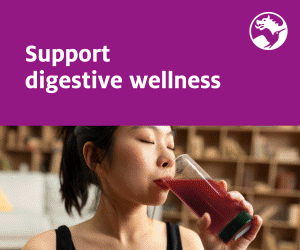UK-based packaging and label supplier OPM Group (OPM) has shared its perspective on how the label industry needs to ensure products reach retailers safely in today’s volatile U.S baby and infant specialist food market.
The statement is a response to recent supply chain issues that saw demand outsrip supply. OPM has suggested reducing waste and ensuring that more physical products reach store shelves is vital.
Susan Ellison, Joint MD at OPM, explains: “In the US, we have all seen high-dependency baby food and infant formula brands coming under immense pressure. The paediatric nutrition supply chain has been stretched to its limit and we believe that label suppliers, including ourselves at OPM Group, have a responsibility to support it in new ways.
Innovation must focus on helping products to safely and securely reach their retail destination. Developing labels that keep products safe and secure
“By focusing on what we do best, securing supply chains with transparency and clarity, we’re in a position to support the specialist baby food sector in times of supply chain difficulty. We have all seen the knock-on impact for consumers when every single stock unit counts – so we also need to look inward at the role of labels in reducing waste and lost inventory. There needs to be uncompromised commitment to quality manufacturing, every single time.”
OPM Group is a manufacturer of label and flexible packaging solutions that takes a function-first approach to design. Supporting the needs of the specialist baby food and healthcare markets, OPM Group is fully certified to PS9000:2011 standards, audited by the Pharmaceutical Quality Group. To meet the rising global demand for products manufactured in controlled “Critical Environments”, OPM Group has installed a fully enclosed and segregated print room. Spanning 60m in length and 7m in height, the facility is equipped with vision panels where air quality, temperature and humidity are precisely managed. These controls, which include microbiological monitoring programmes, protect material substrates from potential contamination and impurities.
Businesses in the infant nutrition sector need to trust their label and packaging suppliers to bring stability. Particularly in a more volatile market, the diverse technologies we are developing today can contribute directly to effective process and operations
Numerous quality and safety advantages are unlocked through the controlled environment facility where OPM prints, finishes and packs materials, particularly for customers operating in high-risk pharmaceutical, food and beverage markets. A tightly controlled print environment supports traceability through the supply chain, protects against potential contaminants and gives patients and end users greater confidence in the products they use; of particular importance to businesses operating in the infant health, pharmaceutical and performance nutrition categories.
To provide its customers with added peace of mind, the business operates to GMP (Good Manufacturing Practice) standards, using controlled-environment manufacturing, 100% electronic inspection and low-migration inks.
Susan Ellison continues: “Innovation must focus on helping products to safely and securely reach their retail destination. Developing labels that keep products safe and secure, be that incorporating antimicrobial technology, peel and reseal for extended shelf life, tamper evidence or otherwise, is a way that our sector can help to bring more stability. The approach ultimately reduces the risk of stock becoming waste, unusable, or worse, unsafe for the patient or end user.”




